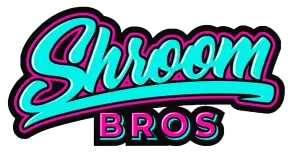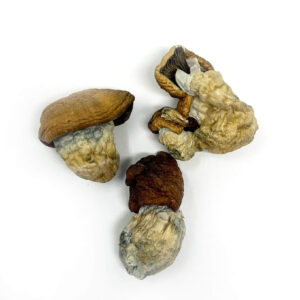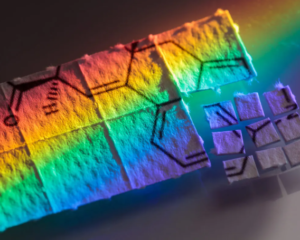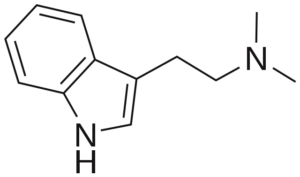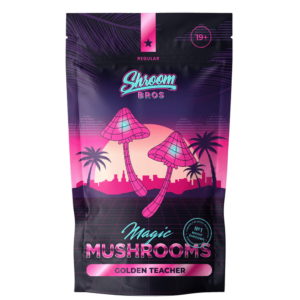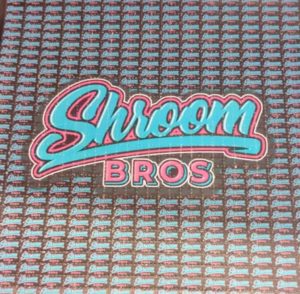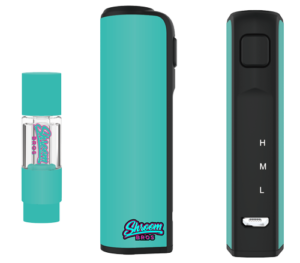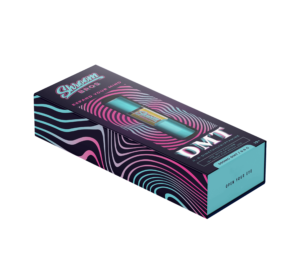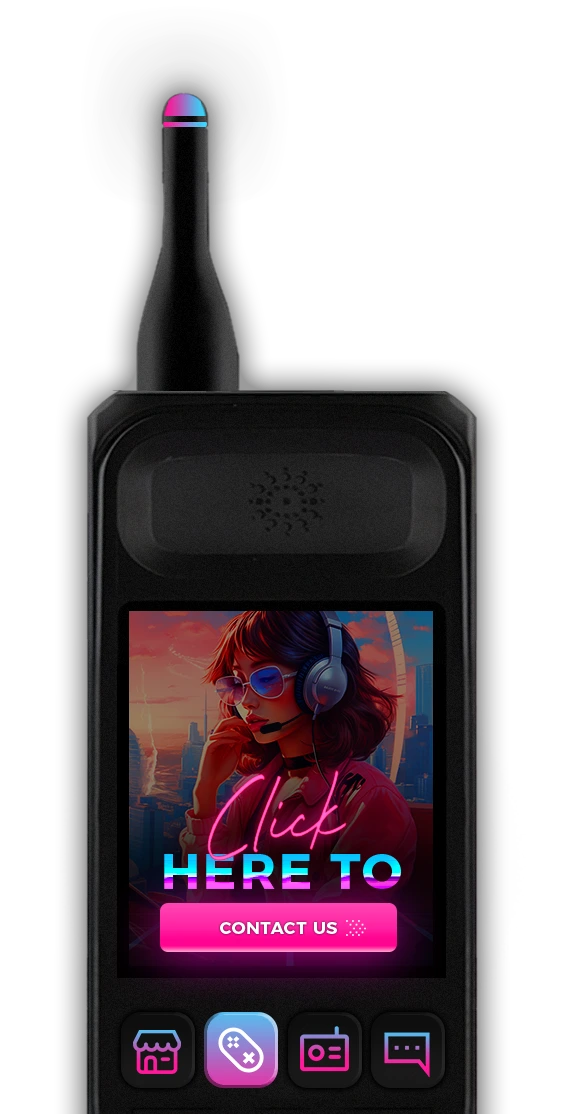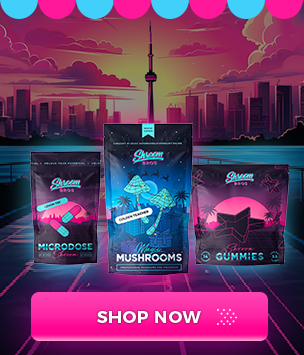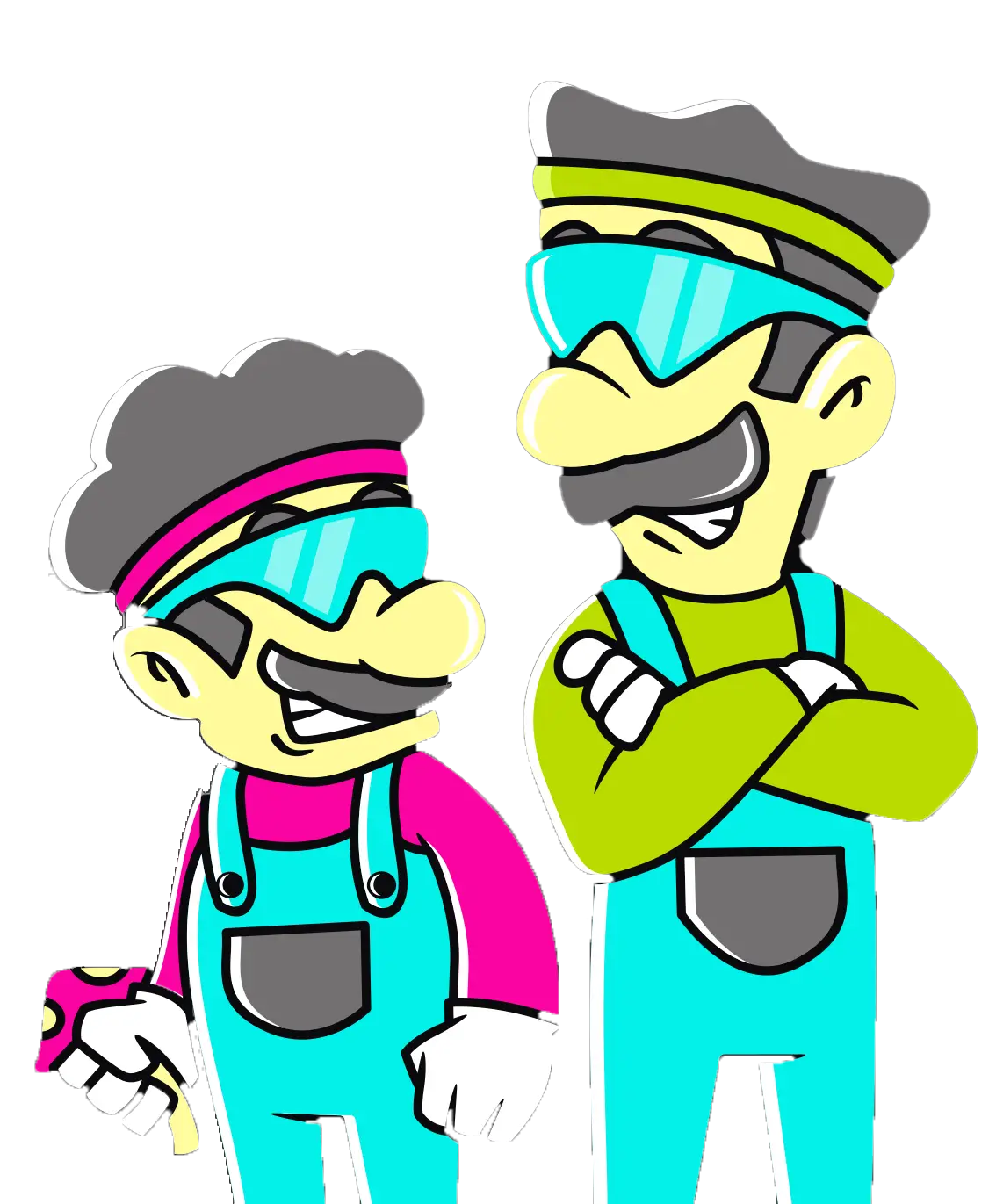The exploration of consciousness through the use of psychedelics has fascinated humans for centuries. Three prominent substances that have gained significant attention in recent times are magic mushrooms, LSD (lysergic acid diethylamide), and DMT (dimethyltryptamine) vapes. Each of these substances offers unique experiences, and their effects on the mind and body can vary dramatically. In this blog, we will explain the differences between magic mushrooms, LSD, and DMT vapes, focusing on their distinct experiences and the potential benefits each can provide.
Magic Mushrooms
Overview
Magic mushrooms, also known as psilocybin mushrooms, contain the psychoactive compounds psilocybin and psilocin. These naturally occurring substances have been used in various cultures for thousands of years for their mind-altering effects. Psilocybin is the precursor that converts into psilocin in the body, which then interacts with serotonin receptors in the brain, leading to profound changes in perception, mood, and cognition. There are over 180 species of mushrooms that contain psilocybin, each with varying concentrations of the compound.
Experience
The experience of consuming magic mushrooms can be deeply introspective and emotional. Typically, the journey lasts between 4 to 6 hours, with the peak effects occurring around 2 to 3 hours after ingestion. Users often describe the following stages:
- Onset (30-60 minutes): Initial effects include a sense of euphoria, visual distortions, and a heightened sensitivity to sounds and colors. Some people may feel a mild nausea during this phase.
- Peak (2-3 hours): During the peak, users may experience intense visual and auditory hallucinations, a sense of time distortion, and profound changes in thought patterns. Emotions can become very vivid, leading to both positive and challenging experiences.
- Resolution (2-3 hours): As the effects start to fade, users often feel a sense of calm and introspection. The experience can leave a lasting impression, often described as a feeling of interconnectedness and insight.
Magic mushrooms are known for their ability to produce vivid visual and auditory hallucinations. Users often report seeing intricate patterns, vibrant colors, and even scenes from their own memories or imagination. These hallucinations are usually accompanied by a sense of wonder and awe, as the ordinary world is transformed into something magical and surreal. Auditory hallucinations can include enhanced perception of music and environmental sounds, which can take on new, profound meanings during the trip.
Benefits
Magic mushrooms have been studied for their potential therapeutic benefits. Here are some of the most notable:
- Mental Health Treatment: Psilocybin has shown promise in treating depression, anxiety, and PTSD. It is believed to help patients by allowing them to process repressed emotions and gain new perspectives on their mental health issues.
- Enhanced Creativity: Many users report an increase in creative thinking and problem-solving abilities. This is likely due to the way psilocybin affects brain connectivity, allowing for novel connections between different regions of the brain.
- Spiritual Experiences: Magic mushrooms are often used in spiritual and religious contexts. Users frequently report feelings of unity with nature, a sense of peace, and profound existential insights.
Research into the therapeutic potential of psilocybin has expanded significantly in recent years. Clinical trials have demonstrated that psilocybin-assisted therapy can lead to substantial and lasting reductions in symptoms of depression and anxiety. The psychedelic experience facilitated by psilocybin allows patients to confront and process deeply ingrained emotional and psychological issues, often leading to breakthroughs that are not possible with traditional therapies.
In addition to mental health benefits, psilocybin has been linked to enhanced creativity. Many artists, writers, and musicians have used magic mushrooms to unlock new levels of creativity and inspiration. The altered state of consciousness induced by psilocybin can lead to unique perspectives and insights that can be applied to creative endeavors. This effect is thought to be due to the increased connectivity between different regions of the brain, allowing for novel ideas and associations to emerge.
LSD (Lysergic Acid Diethylamide)
Overview
LSD, commonly known as acid, is a powerful synthetic hallucinogen. It was first synthesized in 1938 by Swiss chemist Albert Hofmann. LSD interacts with serotonin receptors in the brain, particularly the 5-HT2A receptor, which leads to its potent psychoactive effects. A single dose of LSD is extremely potent, with effects lasting much longer than those of psilocybin. LSD is usually consumed in the form of blotter paper, which is soaked in the substance and then placed on the tongue.
Experience
An LSD trip can last much longer than a magic mushroom trip, typically between 8 to 12 hours. The experience is characterized by several distinct phases:
- Onset (30-90 minutes): Users start to feel changes in perception, such as enhanced colors, patterns, and an altered sense of time. Physical sensations such as tingling or a sense of energy may occur.
- Peak (2-5 hours): During the peak, users often experience intense visual hallucinations, profound changes in thought processes, and a strong sense of interconnectedness. The sense of self may dissolve, leading to what is known as “ego death.”
- Plateau (3-5 hours): The intensity of the trip begins to stabilize, and users often feel a sense of awe and wonder. Cognitive effects can include deep introspection and philosophical insights.
- Come Down (2-4 hours): As the effects start to wear off, users may feel a gradual return to their normal state of consciousness, often accompanied by a sense of peace and satisfaction.
The visual and auditory hallucinations experienced on LSD are often described as more intense and abstract compared to those induced by psilocybin. Users frequently report seeing fractals, geometric patterns, and vibrant, shifting colors. These hallucinations can be incredibly detailed and intricate, creating a sense of being immersed in a different reality. Auditory hallucinations can also be profound, with music and sounds taking on new, complex qualities that can evoke powerful emotional responses.
Benefits
LSD has been researched for its potential benefits in various areas:
- Psychotherapy: LSD has been used in therapeutic settings to help patients explore deep-seated emotional issues. It can facilitate breakthroughs in therapy by allowing patients to view their problems from a different perspective.
- Creativity and Innovation: Many artists, scientists, and engineers have reported using LSD to enhance their creativity and problem-solving abilities. The drug’s ability to alter thought patterns and increase brain connectivity is believed to contribute to these effects.
- Spiritual and Mystical Experiences: Like magic mushrooms, LSD can induce profound spiritual experiences. Users often report feelings of unity, transcendence, and a deep connection to the universe.
LSD has a long history of use in psychotherapy, dating back to the 1950s and 1960s. During this time, therapists used LSD to help patients access repressed memories and emotions, facilitating healing and personal growth. Although the use of LSD in therapy declined due to legal restrictions, recent research has rekindled interest in its potential therapeutic applications. Studies have shown that LSD-assisted therapy can be effective in treating conditions such as PTSD, addiction, and end-of-life anxiety.
The impact of LSD on creativity and innovation is well-documented. Many influential figures in the arts and sciences have credited LSD with helping them achieve breakthroughs and develop novel ideas. The altered state of consciousness induced by LSD allows for a free flow of ideas and associations, which can lead to unique and original insights. This effect is thought to be due to the increased connectivity between different regions of the brain, allowing for enhanced problem-solving and creative thinking.
DMT Vapes (Dimethyltryptamine)
Overview
DMT is a powerful psychedelic compound found in various plants and animals. It is most commonly associated with the shamanic brew ayahuasca, but it can also be synthesized and consumed in vape form. DMT interacts with serotonin receptors in the brain, leading to intense and short-lived hallucinations. Unlike psilocybin and LSD, which are typically ingested or absorbed sublingually, DMT is often vaporized and inhaled, leading to a rapid onset of effects.
Experience
The DMT experience is often described as otherworldly and transformative. The effects are extremely rapid, usually peaking within minutes and lasting between 10 to 30 minutes. The experience can be broken down into the following stages:
- Onset (10-30 seconds): Almost immediately after inhalation, users are propelled into an altered state of consciousness. Visual and auditory hallucinations can become overwhelming.
- Peak (5-15 minutes): During the peak, users may experience a complete disconnection from reality. This phase is often described as entering a different dimension or encountering otherworldly beings. The visuals are extremely vivid and complex.
- Come Down (5-15 minutes): As the effects start to fade, users gradually return to their normal state of consciousness. The transition can be abrupt, leaving a sense of awe and astonishment.
The rapid onset and intensity of the DMT experience set it apart from other psychedelics. Users often describe the experience as being launched into another dimension or reality, where they encounter intricate, ever-changing visuals and otherworldly entities. These entities are often described as intelligent beings or guides, and interactions with them can be deeply meaningful and transformative. The visuals experienced on DMT are incredibly vivid and complex, often defying description and challenging the limits of human imagination.
Benefits
DMT, particularly in the context of ayahuasca, has been studied for its potential benefits:
- Spiritual and Mystical Experiences: DMT is often used in ceremonial contexts for its ability to induce powerful spiritual experiences. Users frequently report encountering divine beings, gaining insights into the nature of existence, and experiencing a sense of rebirth.
- Psychological Healing: Ayahuasca, which contains DMT, has been used traditionally to treat a variety of mental health issues. Modern studies suggest that it can help with conditions such as depression, anxiety, and PTSD by allowing users to confront and process traumatic experiences.
- Personal Insight and Growth: DMT can provide users with profound personal insights. Many people report gaining a deeper understanding of themselves and their place in the universe, which can lead to lasting positive changes in their lives.
DMT is a key component of the shamanic brew ayahuasca, which has been used for centuries by indigenous cultures in the Amazon for healing and spiritual purposes. Ayahuasca ceremonies are often conducted under the guidance of a shaman, who helps participants navigate the intense and transformative experience. Modern research has shown that ayahuasca can be effective in treating a range of mental health conditions, including depression, anxiety, and PTSD. The powerful and often cathartic experiences facilitated by ayahuasca allow users to confront and process traumatic memories and emotions.
In addition to its therapeutic benefits, DMT is known for its ability to induce profound spiritual and mystical experiences. Users often report feeling a sense of connection to a higher power or the universe, gaining insights into the nature of existence, and experiencing a sense of rebirth or renewal. These experiences can lead to lasting positive changes in perspective and behavior, promoting personal growth and self-understanding.
Comparing the Experiences
Duration and Intensity
One of the most significant differences between magic mushrooms, LSD, and DMT vapes is the duration and intensity of the experience. Magic mushrooms offer a medium-length journey, typically lasting 4 to 6 hours, with a gradual onset and resolution. LSD provides a much longer experience, ranging from 8 to 12 hours, with a prolonged peak and gradual comedown. In contrast, DMT vapes offer an extremely intense but short-lived experience, lasting only 10 to 30 minutes, with a rapid onset and abrupt return to normal consciousness.
The duration and intensity of these experiences can influence the context in which they are used. Magic mushrooms and LSD are often used in longer, more immersive settings, such as nature retreats, music festivals, or therapeutic sessions. The longer duration allows users to fully explore and integrate the experience. In contrast, the short duration of DMT makes it more suitable for brief, intense explorations of consciousness, often conducted in a controlled and safe environment.
Visual and Auditory Hallucinations
All three substances can induce powerful visual and auditory hallucinations, but the nature of these experiences can differ:
- Magic Mushrooms: The hallucinations induced by psilocybin are often described as more organic and natural. Users report seeing intricate patterns, vibrant colors, and enhanced appreciation of nature. The visuals can be deeply connected to the emotional and spiritual aspects of the experience.
- LSD: LSD hallucinations tend to be more geometric and abstract. Users often see fractals, mandalas, and other complex patterns. The visuals can be extremely vivid and can intertwine with deep philosophical and introspective thoughts.
- DMT: DMT visuals are often described as otherworldly and alien. Users report seeing intricate, rapidly changing patterns and encountering entities that appear sentient. The visuals are extremely intense and can completely replace the perception of the surrounding environment.
The nature of these hallucinations can significantly influence the user’s experience. The organic and natural visuals of psilocybin often evoke a sense of connection to nature and the universe, enhancing the emotional and spiritual aspects of the trip. In contrast, the abstract and geometric visuals of LSD can lead to deep philosophical and introspective insights, challenging the user’s understanding of reality. The otherworldly visuals of DMT can create a sense of awe and wonder, often leaving users with a profound sense of mystery and curiosity.
Emotional and Cognitive Effects
The emotional and cognitive effects of these substances also vary:
- Magic Mushrooms: Psilocybin can induce a wide range of emotions, from euphoria to profound sadness. The experience can be highly introspective, allowing users to explore their inner thoughts and feelings. Many people report feeling a deep sense of connection to nature and the universe.
- LSD: LSD is known for its ability to induce deep cognitive insights and philosophical thoughts. Users often describe the experience as a journey through the mind, uncovering hidden truths and gaining new perspectives. The emotional effects can be equally profound, ranging from intense joy to deep contemplation.
- DMT: The emotional effects of DMT are often described as awe-inspiring and overwhelming. The rapid onset and intensity of the experience can lead to a sense of being completely transported to another realm. Users frequently report feelings of love, unity, and a sense of encountering the divine.
The emotional and cognitive effects of these substances can lead to lasting changes in perspective and behavior. The introspective nature of psilocybin allows users to explore their inner thoughts and emotions, often leading to greater self-understanding and personal growth. The deep cognitive insights induced by LSD can lead to new perspectives and innovative ideas, enhancing creativity and problem-solving abilities. The awe-inspiring and often spiritual experiences facilitated by DMT can lead to a sense of connection to the universe and a deeper understanding of the nature of existence.
Benefits of Each Substance
Magic Mushrooms
Magic mushrooms have shown promise in various therapeutic applications:
- Depression and Anxiety Treatment: Clinical studies have demonstrated the potential of psilocybin to alleviate symptoms of depression and anxiety. The substance is believed to promote neural plasticity and help patients process and overcome negative thought patterns.
- End-of-Life Anxiety: Psilocybin has been used to help terminally ill patients cope with the fear of death. The profound spiritual experiences induced by the substance can provide a sense of peace and acceptance.
- Addiction Treatment: There is growing evidence that psilocybin can help treat substance abuse disorders. The introspective nature of the experience can help users address the root causes of their addiction and make lasting positive changes.
The therapeutic potential of psilocybin is being increasingly recognized in the medical community. Clinical trials have shown that psilocybin-assisted therapy can lead to substantial and lasting improvements in mental health, particularly in patients with treatment-resistant depression and anxiety. The ability of psilocybin to promote neural plasticity and enhance brain connectivity is thought to be key to its therapeutic effects, allowing patients to break free from negative thought patterns and develop new, healthier perspectives.
In addition to its mental health benefits, psilocybin has shown promise in treating substance abuse disorders. The introspective nature of the psilocybin experience allows users to explore the underlying causes of their addiction, often leading to profound insights and lasting positive changes. Studies have shown that psilocybin-assisted therapy can lead to significant reductions in substance use and cravings, making it a promising tool in the fight against addiction.
LSD
LSD has been researched for its potential benefits in various fields:
- Psychotherapy: LSD-assisted therapy has been shown to help patients explore and resolve deep-seated emotional issues. The substance can facilitate breakthroughs in therapy by allowing patients to view their problems from new perspectives.
- Creativity and Innovation: Many artists, scientists, and engineers have reported using LSD to enhance their creativity and problem-solving abilities. The altered state of consciousness induced by LSD can lead to novel insights and innovative ideas.
- Personal Growth and Self-Exploration: LSD can provide users with profound personal insights. Many people report gaining a deeper understanding of themselves and their place in the universe, leading to lasting positive changes in their lives.
The use of LSD in psychotherapy has a long and storied history. During the 1950s and 1960s, therapists used LSD to help patients access repressed memories and emotions, facilitating healing and personal growth. Although the use of LSD in therapy declined due to legal restrictions, recent research has rekindled interest in its potential therapeutic applications. Studies have shown that LSD-assisted therapy can be effective in treating conditions such as PTSD, addiction, and end-of-life anxiety.
The impact of LSD on creativity and innovation is well-documented. Many influential figures in the arts and sciences have credited LSD with helping them achieve breakthroughs and develop novel ideas. The altered state of consciousness induced by LSD allows for a free flow of ideas and associations, which can lead to unique and original insights. This effect is thought to be due to the increased connectivity between different regions of the brain, allowing for enhanced problem-solving and creative thinking.
DMT Vapes
DMT, particularly in the context of ayahuasca, has been studied for its potential benefits:
- Spiritual and Mystical Experiences: DMT is often used in ceremonial contexts for its ability to induce powerful spiritual experiences. Users frequently report encountering divine beings, gaining insights into the nature of existence, and experiencing a sense of rebirth.
- Psychological Healing: Ayahuasca, which contains DMT, has been used traditionally to treat a variety of mental health issues. Modern studies suggest that it can help with conditions such as depression, anxiety, and PTSD by allowing users to confront and process traumatic experiences.
- Personal Insight and Growth: DMT can provide users with profound personal insights. Many people report gaining a deeper understanding of themselves and their place in the universe, which can lead to lasting positive changes in their lives.
DMT is a key component of the shamanic brew ayahuasca, which has been used for centuries by indigenous cultures in the Amazon for healing and spiritual purposes. Ayahuasca ceremonies are often conducted under the guidance of a shaman, who helps participants navigate the intense and transformative experience. Modern research has shown that ayahuasca can be effective in treating a range of mental health conditions, including depression, anxiety, and PTSD. The powerful and often cathartic experiences facilitated by ayahuasca allow users to confront and process traumatic memories and emotions.
In addition to its therapeutic benefits, DMT is known for its ability to induce profound spiritual and mystical experiences. Users often report feeling a sense of connection to a higher power or the universe, gaining insights into the nature of existence, and experiencing a sense of rebirth or renewal. These experiences can lead to lasting positive changes in perspective and behavior, promoting personal growth and self-understanding.
Conclusion
Magic mushrooms, LSD, and DMT vapes each offer unique experiences and potential benefits. Magic mushrooms provide a deeply introspective and emotional journey that can aid in mental health treatment and personal growth. LSD offers a longer, more cognitive experience that can enhance creativity and facilitate profound personal insights. DMT vapes, with their intense and brief experiences, can provide powerful spiritual and mystical insights, often leading to a sense of awe and wonder.
Each of these substances has its own set of characteristics and potential benefits, making them valuable tools for exploring the depths of human consciousness. Whether used for therapeutic purposes, personal growth, or spiritual exploration, these psychedelics offer profound opportunities for transformation and self-discovery. As research continues to uncover the potential of these substances, their role in enhancing human well-being and understanding will likely become increasingly significant.

